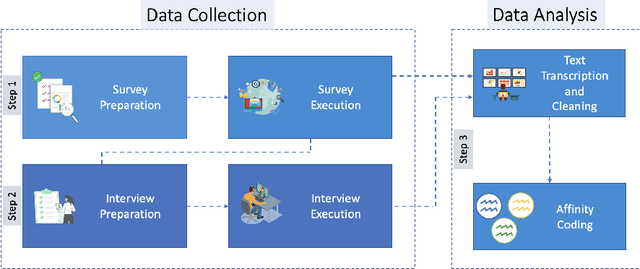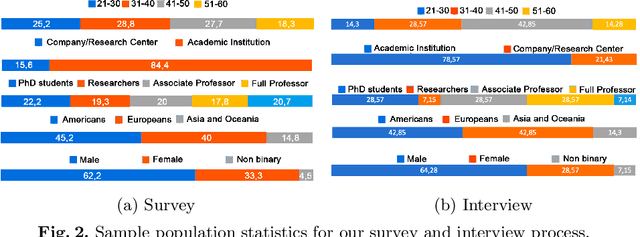Roberta Galici
Do Not Trust a Model Because It is Confident: Uncovering and Characterizing Unknown Unknowns to Student Success Predictors in Online-Based Learning
Dec 16, 2022Abstract:Student success models might be prone to develop weak spots, i.e., examples hard to accurately classify due to insufficient representation during model creation. This weakness is one of the main factors undermining users' trust, since model predictions could for instance lead an instructor to not intervene on a student in need. In this paper, we unveil the need of detecting and characterizing unknown unknowns in student success prediction in order to better understand when models may fail. Unknown unknowns include the students for which the model is highly confident in its predictions, but is actually wrong. Therefore, we cannot solely rely on the model's confidence when evaluating the predictions quality. We first introduce a framework for the identification and characterization of unknown unknowns. We then assess its informativeness on log data collected from flipped courses and online courses using quantitative analyses and interviews with instructors. Our results show that unknown unknowns are a critical issue in this domain and that our framework can be applied to support their detection. The source code is available at https://github.com/epfl-ml4ed/unknown-unknowns.
Experts' View on Challenges and Needs for Fairness in Artificial Intelligence for Education
Jun 23, 2022

Abstract:In recent years, there has been a stimulating discussion on how artificial intelligence (AI) can support the science and engineering of intelligent educational applications. Many studies in the field are proposing actionable data mining pipelines and machine-learning models driven by learning-related data. The potential of these pipelines and models to amplify unfairness for certain categories of students is however receiving increasing attention. If AI applications are to have a positive impact on education, it is crucial that their design considers fairness at every step. Through anonymous surveys and interviews with experts (researchers and practitioners) who have published their research at top-tier educational conferences in the last year, we conducted the first expert-driven systematic investigation on the challenges and needs for addressing fairness throughout the development of educational systems based on AI. We identified common and diverging views about the challenges and the needs faced by educational technologies experts in practice, that lead the community to have a clear understanding on the main questions raising doubts in this topic. Based on these findings, we highlighted directions that will facilitate the ongoing research towards fairer AI for education.
 Add to Chrome
Add to Chrome Add to Firefox
Add to Firefox Add to Edge
Add to Edge